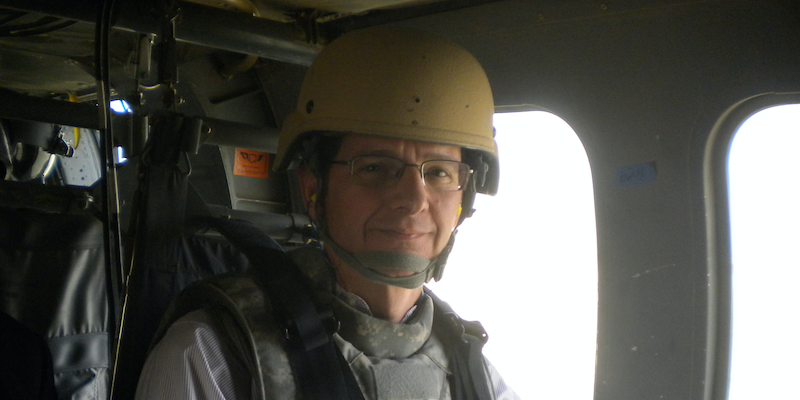What Do Diplomats Do After Leaving the Foreign Service?
In a recent survey, 57 percent of those who retired in 2018 and 2019 said they took new jobs. A quarter of them were in full-time positions.

Once I asked a group of eight retiring diplomats to share something about themselves that wasn’t on their resume. The first recalled a near-miss by the blast of an improvised explosive device in wartime Iraq. Then each of the others told their own story of a near-death experience abroad, involving bombs, rocket attacks, earthquakes, fires in poorly constructed hotels or deadly traffic in developing countries.
Decades of long hours working in high-intensity roles and often in environmentally difficult locations had taken a toll on those Foreign Service officers, as they do on most of their colleagues. Retiring service members are usually relieved to be free of logistical hassles, such as moving every three years or less, writing annual employee evaluation reports and dealing with productivity-sapping information technology. Many welcome their liberation from legal constraints on engaging in political activity and speaking out on foreign policy issues in their own voice.
Still, as I found out while mentoring hundreds of soon-to-be retirees in the last six years at the Foreign Service Institute (FSI), most feel a sense of loss at stepping away from the diplomatic lifestyle. They miss the honor of representing the United States abroad and the camaraderie of talented colleagues advancing U.S. interests.
So what do they end up doing after leaving the service? They share a determination to focus on exercise, improved diet and de-stressing, and they plan to reconnect with family members, many of whose birthdays, weddings and graduations they missed over the decades while serving half-way around the world. But that’s where the similarities stop. While some eagerly embrace leisure activities, such as walking the Camino de Santiago across northern Spain, others start a new 60-hour per week job on the Monday after retirement. While some travel the world visiting friends they made over the years, others put their passport in a drawer and move back to small-town America to re-establish roots where they grew up.
What about work? Although the mandatory retirement age in the Foreign Service is 65, only 20 percent last that long on active duty, according to State Department statistics. A few leave after completing the required minimum of 20 years of service, but most are forced out because they weren’t promoted within the period determined by the up-or-out personnel system, which is modeled on the military’s rank-in-person system. A typical officer joins the service around age 30 and works an average of 30 years, retiring in their late 50s or early 60s.
So it’s no surprise that 57 percent of employees who retired in 2018 and 2019 took new jobs, though only a quarter of those were full-time positions. An FSI survey showed that, of all paid employees, 56 percent returned to public service, 20 percent joined private companies, 15 percent chose education, 9 percent were self-employed and 7 percent started working at non-profit organizations. The total is more than 100 percent, because some people held multiple jobs. Further details can be found in the upcoming fourth edition of the book “Career Diplomacy,” which I co-authored with Harry Kopp, another former Foreign Service officer.
Just over half of those who were employed worked part-time at the State Department or the U.S. Agency for International Development, through a program that allows Foreign Service retirees to work up to half of each calendar year — without losing their pensions — filling staffing gaps. For example, a retired consular officer who is fluent in Mandarin would fill in for several months at a U.S. consulate in China, interviewing visa applicants during the summer transfer season.
In my own case, after 29 years as a Foreign Service officer, I faced involuntary retirement at age 58. With two daughters about to start college, I needed to keep working to help pay their tuition.
As for the 43 percent of survey respondents who didn’t return to paid employment, they said they were engaged in traditional retirement activities, such as travel, recreation, reading and socializing. More than half reported participating in volunteer work. More than a third took up lifelong learning in a variety of for-credit and non-credit courses.
Despite all its risks and challenges, a career in the Foreign Service is enormously rewarding. It builds intellectual curiosity, wanderlust and a social confidence that leaves one open to new friendships, new experiences and the joy of life. There is no better preparation for a happy and meaningful retirement.
John K. Naland is a former Foreign Service officer whose posts included Colombia, Costa Rica, Nicaragua, Mexico and Iraq. He twice served as president of the American Foreign Service Association. He is the co-author of “Career Diplomacy: Life and Work in the U.S. Foreign Service.”
The opinions and characterizations are those of the author and don’t necessarily represent the views of the U.S. government.

